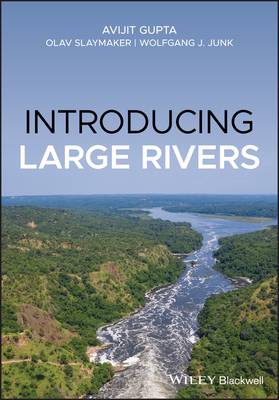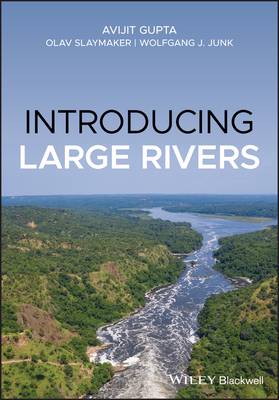
- Afhalen na 1 uur in een winkel met voorraad
- Gratis thuislevering in België vanaf € 30
- Ruim aanbod met 7 miljoen producten
- Afhalen na 1 uur in een winkel met voorraad
- Gratis thuislevering in België vanaf € 30
- Ruim aanbod met 7 miljoen producten
Omschrijving
An accessible introduction to large rivers, including coverage of the geomorphology, hydrology, ecology, and environments of large river systems
This indispensible book takes a structured and global approach to the subject of large rivers, covering geomorphology, hydrology, ecology, and anthropogenic environment. It offers a thorough foundation for readers who are new to the field and presents enlightening discussions about issues of management at the worldwide scale. The book also examines possible future adaptations that may come about due to climate change. The book has benefitted from contributions by Professor W.J. Junk on the ecology of floodplains and Professor Olav Slaymaker on the large arctic rivers.
Introducing Large Rivers is presented in three parts. Part 1 provides an introduction to the world's large rivers and their basins. It covers source, transfer, and storage of their water and sediment; Pleistocene inheritance; the ecology of channels and floodplains; deltas; and more. Several large rivers are discussed in the next part. These include the Amazon Mississippi, Nile, Ganga-Brahmaputra System, Mekong, and Yangtze. The last part examines changes in large rivers and our management of river systems. It studies anthropogenic alterations such as land use and deforestation in large river basins; structural control systems like dams and reservoirs on channels; and ecological changes. It finishes with chapters on the management of large rivers, covering both technical and political aspects, and the future of the world's big river systems.
Introducing Large Rivers is ideal as an introductory textbook on large rivers for future earth and environmental scientists and river managers. It will also benefit advanced undergraduate and graduate students studying geography, geology, ecology, and river management.
Specificaties
Betrokkenen
- Auteur(s):
- Uitgeverij:
Inhoud
- Aantal bladzijden:
- 304
- Taal:
- Engels
Eigenschappen
- Productcode (EAN):
- 9781118451403
- Verschijningsdatum:
- 9/03/2020
- Uitvoering:
- Paperback
- Formaat:
- Trade paperback (VS)
- Afmetingen:
- 170 mm x 241 mm
- Gewicht:
- 521 g

Alleen bij Standaard Boekhandel
Beoordelingen
We publiceren alleen reviews die voldoen aan de voorwaarden voor reviews. Bekijk onze voorwaarden voor reviews.











